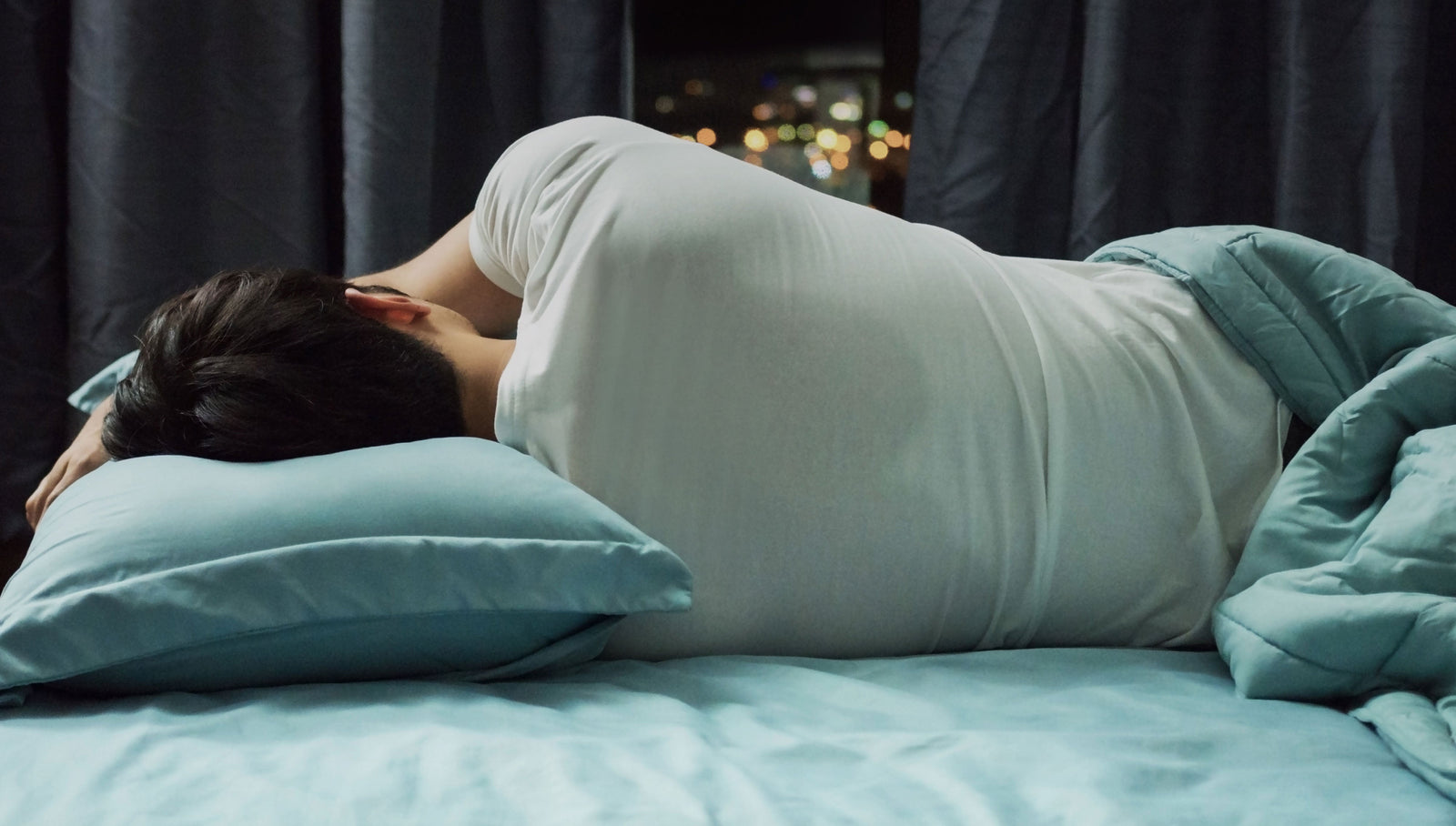Your Cart is Empty

Do you ever wake up in the middle of the night, with a jolt, to find your clothes and sheets soaked in sweat? The first time it happens can be alarming, not to mention incredibly uncomfortable and disruptive. If you are lucky, it was an isolated event. Unfortunately, night sweats can become repetitive, depending on the reason they are happening.
Keep reading as we explore what causes night sweating, when to speak to your doctor about it, and how to manage it.
Night sweats are bouts of excessive sweating. They can be so severe that they soak your sleepwear and sheets, and often wake you up in the middle of the night. In general, occasional nighttime sweating can occur when sleeping under too many blankets or in a room that is too warm. This is your body’s reaction to adjusting its internal temperature.
However, frequent episodes of intense night sweats can be an indication of an underlying medical condition or a side effect of certain medications. Night sweats may also be accompanied by other changes in your health.
It is important to know what causes night sweating. There are numerous reasons why you may experience night sweats. Thankfully, not all of them are caused by an underlying medical condition.
Common causes of situational or infrequent night sweats include:
However, some of the likely causes of night sweats are due to underlying medical conditions. These more serious medical conditions include:
Frequent episodes of intense night sweats can be an indication of an underlying medical condition.
Since not all night sweating causes are due to a medical issue, you may wonder when you should talk to your doctor.
If you experience occasional night sweats and you don’t have any other disconcerting symptoms, there are ways to manage your nighttime sweating before talking to your doctor. (See our tips below to manage night sweats, most of which involve simple lifestyle changes.)
Conversely, you should talk to your doctor if you experience night sweats frequently and/or they routinely disrupt your sleep and/or waking life. It is also important to speak to your doctor if you are experiencing other health changes in addition to the nighttime sweating.
There are several things you can easily do on your own to relieve nighttime sweating. Our list of suggested tips to help manage night sweats includes changes to your routine, lifestyle, and/or diet.
In addition to these tips, your doctor may also recommend medications or medical treatments to address the source of your night sweats.
Night sweats can interrupt your sleep and impact the quality of your life. Learning what causes night sweating is the first step in learning how to manage it.
Do you experience excessive sweating during waking hours? Try out Ejis sweat proof undergarments (available from our shop or on Amazon), which are designed to protect your clothing from sweat marks and body odor. Our boxer briefs and undershirts have a thin waterproof layer in some of the most common areas affected by sweat. And all of our products, including our dress socks, feature odor-fighting technology made from real silver.
This article is for informational purposes only and is not intended to serve as a substitute for the consultation, diagnosis, and/or medical treatment of a qualified physician or healthcare provider.
 Ejis, Inc. is a participant in the Amazon Services LLC Associates Program, an affiliate advertising program designed to provide a means for sites to earn advertising fees by advertising and linking to amazon.com. Some links on this page provide us with a commission at no additional cost to you.
Ejis, Inc. is a participant in the Amazon Services LLC Associates Program, an affiliate advertising program designed to provide a means for sites to earn advertising fees by advertising and linking to amazon.com. Some links on this page provide us with a commission at no additional cost to you.

Let's be honest, we all deal with body odor to some extent. It's natural, especially after a busy day or a good workout. But even though body odor naturally occurs, there are ways to prevent it with the right product. We understand the importance of feeling fresh and confident, so keep reading for our top picks for the best deodorant for men.


As temperatures rise, finding the best summer clothes for heavy sweating may be your top priority. The right clothing can help you manage excessive sweat and maintain confidence. In this guide, we look at the benefits of different fabrics and recommend top-rated clothing items.